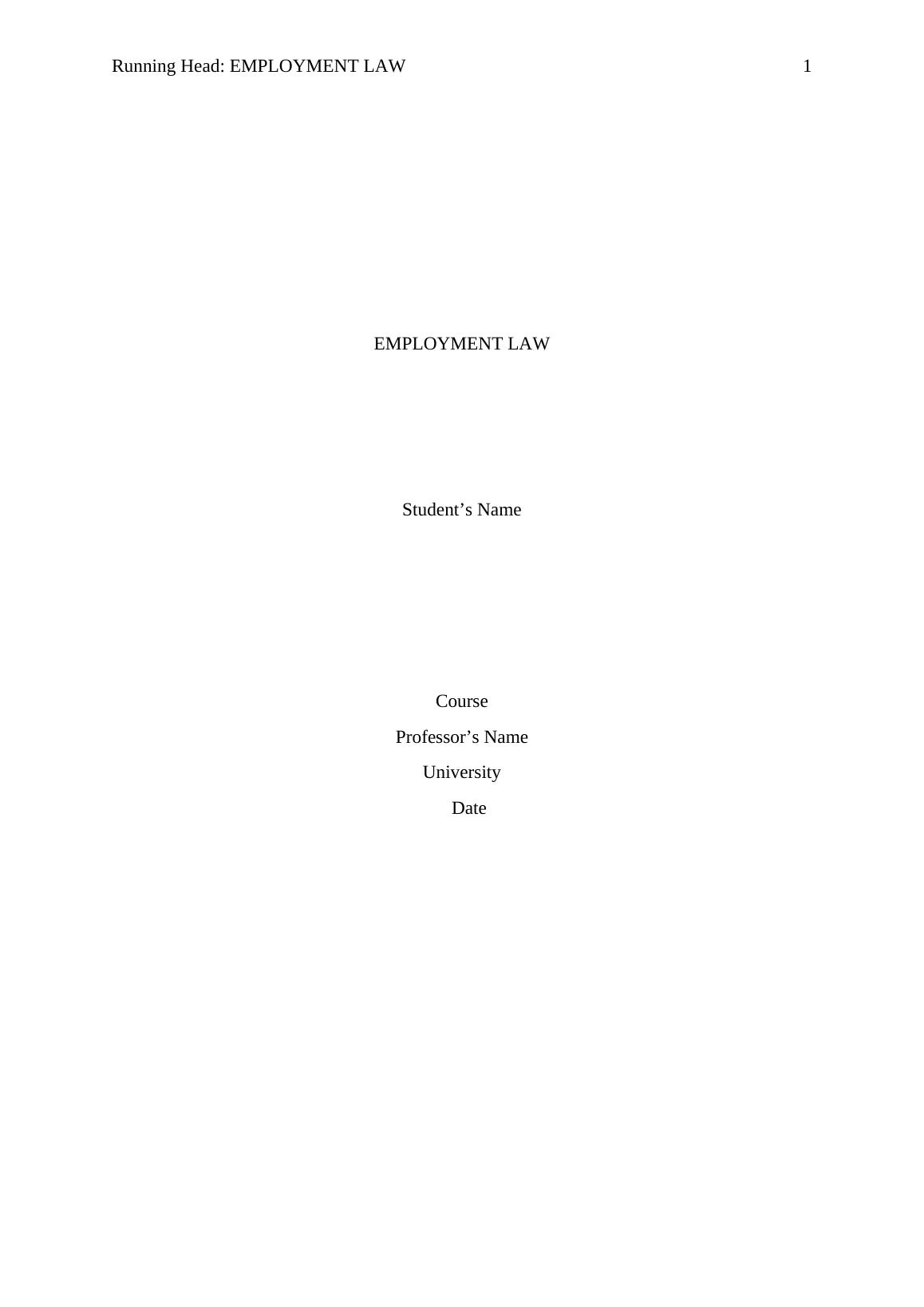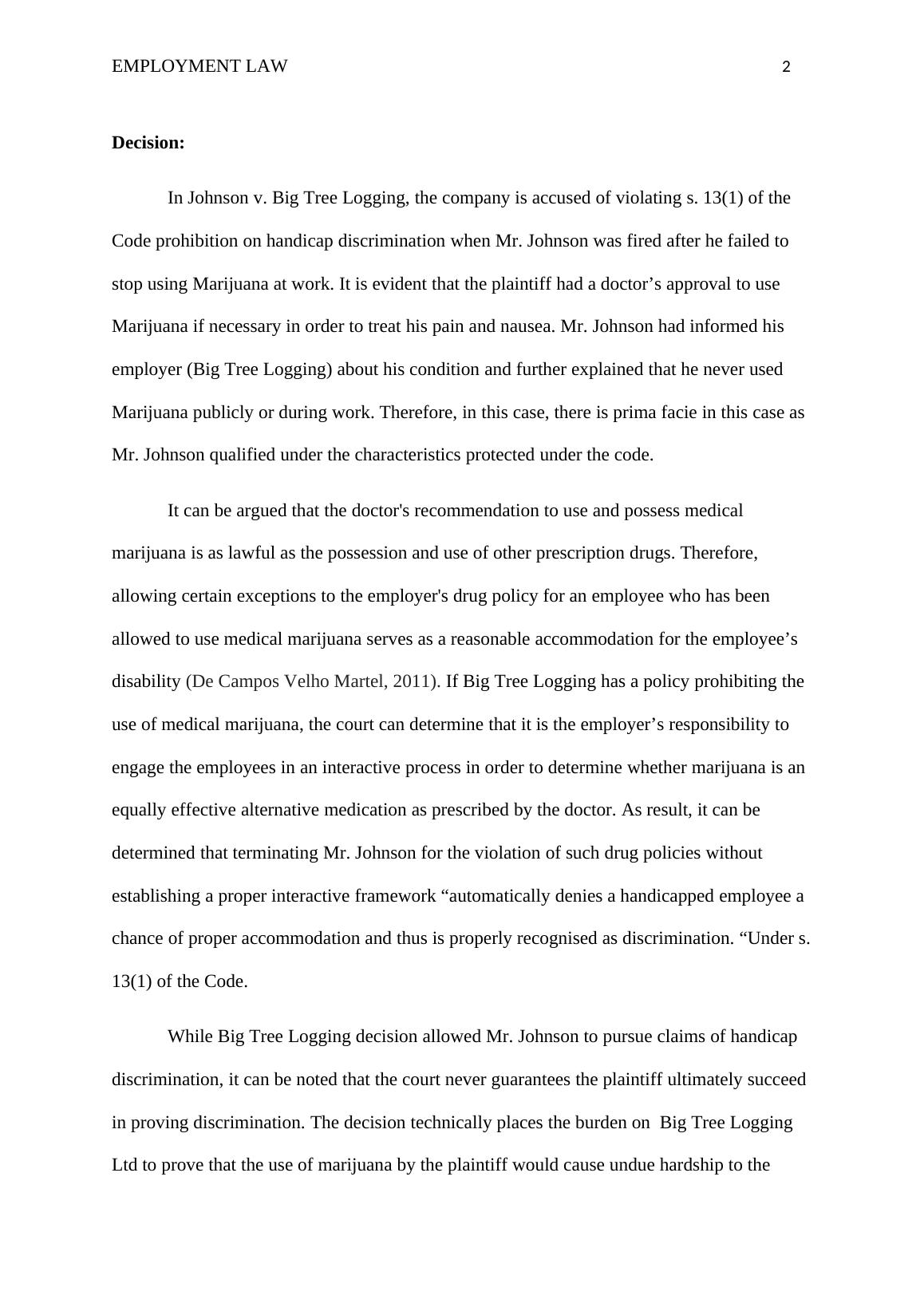Employment Law: Johnson v. Big Tree Logging Case Analysis
Analyzing a case of alleged discrimination in employment based on physical disability under the Human Rights Code.
4 Pages708 Words453 Views
Added on 2023-04-25
About This Document
This document provides an analysis of the Johnson v. Big Tree Logging case in the context of employment law. It discusses the violation of s. 13(1) of the Code prohibition on handicap discrimination when Mr. Johnson was fired after he failed to stop using Marijuana at work.
Employment Law: Johnson v. Big Tree Logging Case Analysis
Analyzing a case of alleged discrimination in employment based on physical disability under the Human Rights Code.
Added on 2023-04-25
ShareRelated Documents
End of preview
Want to access all the pages? Upload your documents or become a member.
Employment Law: Refusal to Re-hire an Employee Discharged for Workplace Misconduct
|5
|878
|451


